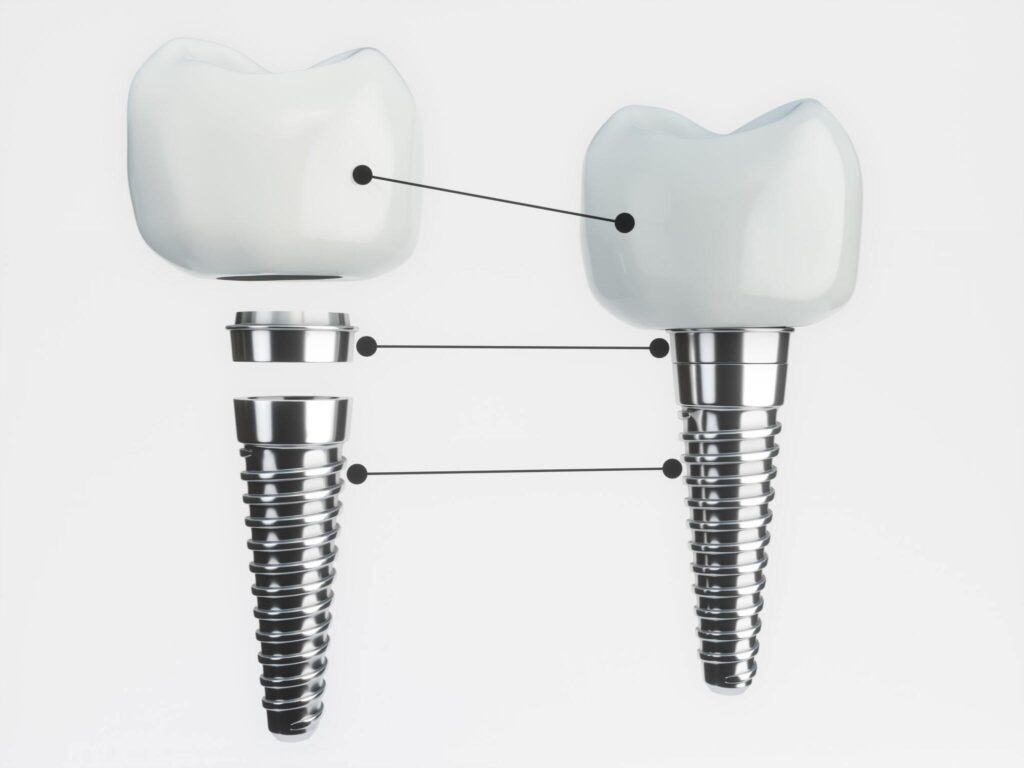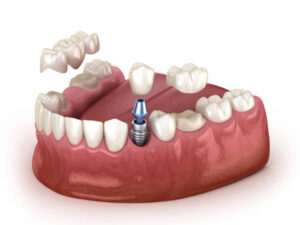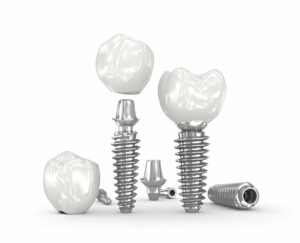When they face the loss of a tooth, many wonder if the NHS covers the cost of dental implants. Implants are a modern solution for missing teeth. This article dives deep into the realms of NHS policies to unravel the truth about dental implant funding, shedding light on your options in the UK.
What Are Dental Implants?
Dental implants are titanium screws that replace the root part of a missing tooth. Once in place, they allow for the attachment of a crown or bridge. This offers a stable and permanent fix that is like natural teeth in both function and looks.
NHS Coverage for Dental Implants
The NHS provides dental implants under specific cases. They are not just for looks, but are a need for health and function. Here’s what you need to understand about the NHS criteria:
- The NHS might fund your dental implants if there’s a clear medical need. For example, due to congenital absence of teeth or teeth lost from trauma or disease.
- Severe Conditions: Patients who cannot wear dentures or those who have had certain types of cancer might also qualify.
- Clinical Suitability: Each case is assessed on its own merits. The focus is on the health benefits of having implants.
Understanding the Costs
Dental implants are known for their durability but also for their higher costs. On the NHS, the treatment is categorized under Band 3, which costs around . However, not all patients will qualify for NHS-funded implants, and even then, the coverage may not cater to the full cost of the procedure.
Private Treatment: A Viable Alternative?
The NHS has strict criteria. So, many opt for private treatment. It is more expensive, but offers instant and tailored help. Here’s what to expect if you go private:
- Availability: Unlike the NHS, private clinics often have shorter waiting times for procedures.
- Private practices may offer more advanced implant types, like all-on-4. These types are rarely available through NHS funding.
Financial Assistance and Planning
For those considering the private route due to ineligibility for NHS funding, there are several ways to manage the costs:
- Payment Plans: Many private clinics offer financing options. They allow for spreading the cost over several months or even years.
- Some insurance policies cover part of dental implants. This is especially true if the need for implants is due to an accident.
Making the Decision
Deciding on NHS or private dental implants involves considering many factors:
- Assessment: Consult with your NHS dentist to discuss your eligibility for funded treatment.
- Consider the long-term health benefits and cost-effectiveness. If NHS funding is not available, have the procedure done privately.
- Consult multiple clinics. If going private, consult several to compare costs, financing, and care quality.
Conclusion
The NHS does support dental implants in some cases. But, many will find that private treatment is a quicker, though pricier, alternative. You may qualify for NHS support or choose private care. Dental implants can greatly improve your life. They restore function and confidence in your smile.
Discover Your Smile Again with Aberdeen Dental Implant Clinic
Ready to explore your options for dental implants? Aberdeen Dental Implant Clinic offers expert care and advanced treatment options tailored to your needs. Contact us today to schedule a consultation and take the first step towards a confident, lasting smile.
Frequently Asked Question
Can everyone get dental implants on the NHS?
No, NHS dental implants are limited to patients with specific medical conditions or severe cases where other solutions are not viable.
What are the criteria for NHS dental implant eligibility?
Eligibility typically requires a pronounced medical need, such as congenital absence of teeth or loss due to cancer.
How much do dental implants cost on the NHS?
Costs vary; however, if you qualify under NHS criteria, your expenses might be significantly reduced compared to private treatment.
Can I get dental implants on the NHS for cosmetic reasons?
No, the NHS does not fund dental implants for cosmetic purposes. They are provided only for clinical needs.
What alternatives are there if I don’t qualify for NHS-funded implants?
Alternatives include self-funded implants, dental bridges, or partial dentures, depending on your specific dental health needs.





